Strengthening Resilience: A Collective Call for Action in Disaster Risk Reduction
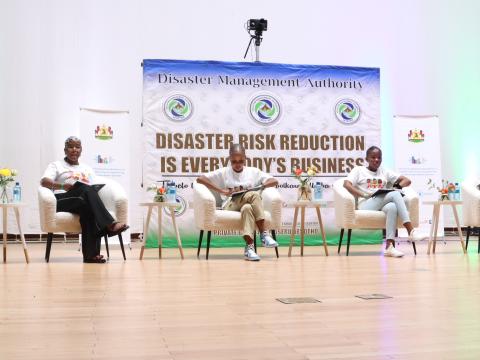
By Lineo Monalana, Advocacy, Policy & Communications Officer ECHO, Lesotho
As climate change intensifies and environmental challenges continue to impact vulnerable communities, citizen participation in disaster risk reduction (DRR) has never been more critical. World Vision International Lesotho remains steadfast in supporting national efforts to safeguard Basotho communities from the increasing threats posed by natural disasters. This commitment was echoed by World Vision International Lesotho’s National Director, Mr. James Chifwelu, during the National Dialogue on Disaster Preparedness held in Maseru.
Mr. Chifwelu highlighted World Vision’s ongoing efforts in disaster risk reduction through various programs and projects. By working closely with the government and local communities, the organization aims to strengthen resilience and preparedness, ensuring that Basotho communities are equipped to mitigate and respond to disasters effectively.
A Platform for Collaboration and Action
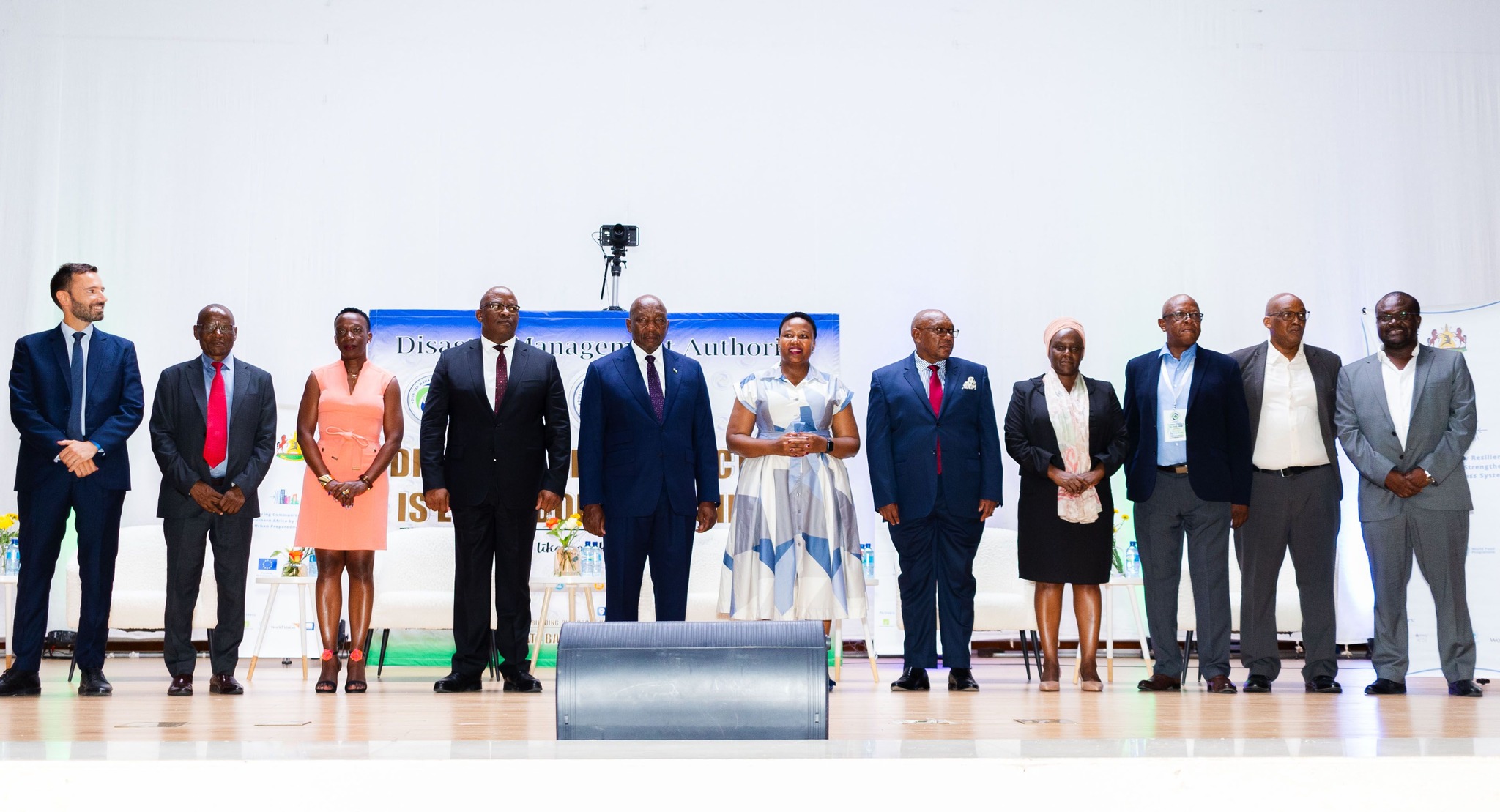
The National Dialogue on Disaster Preparedness, organized in collaboration with World Vision Lesotho, the Disaster Management Authority, and the World Food Programme, served as a crucial forum for discussing DRR strategies. The event brought together key stakeholders from various sectors, including government officials, civil society representatives, and community leaders, to assess the state of disaster preparedness and explore innovative solutions.
A key takeaway from the dialogue was the unanimous agreement that disaster preparedness requires urgent and coordinated action. This shared recognition underscored the need for multi-sectoral engagement, where every Mosotho citizen, from policymakers to grassroots communities, plays an active role in DRR.
Amplifying the Voices of Children in DRR
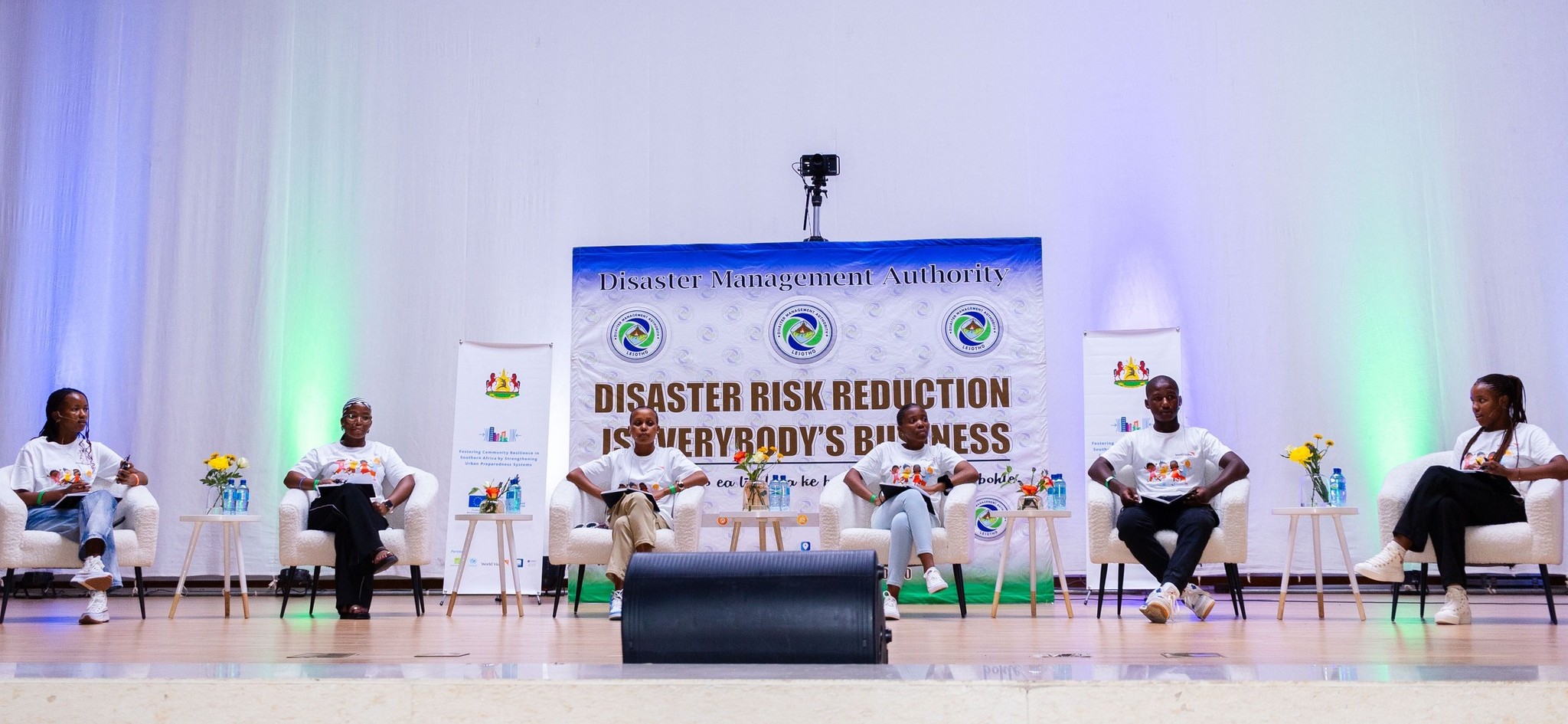
One of the most compelling moments of the dialogue came from an often-overlooked group: children. Represented by the World Vision Youth Parliament, young Basotho courageously shared their experiences and concerns regarding disaster preparedness in their schools. They spoke candidly about the hazardous conditions they face, particularly in dilapidated classrooms that become unsafe during extreme weather events.
The children called for safe and conducive learning environments that uphold their right to education, emphasizing that a secure education system is essential for Lesotho’s future. Additionally, they highlighted the lack of early warning systems tailored to children, stressing the need for inclusive disaster risk communication that ensures young people receive the information necessary to stay safe during emergencies.
"Children should be included in the design of national and local disaster risk reduction strategies. Their inclusion not only ensure that their unique needs and vulnerabilities are addressed, but also recognizes their potential as active contributors to disaster preparedness and recovery efforts" - Patience Masupha, Youth Parliamentarian
The Role of Technology and Policy in DRR
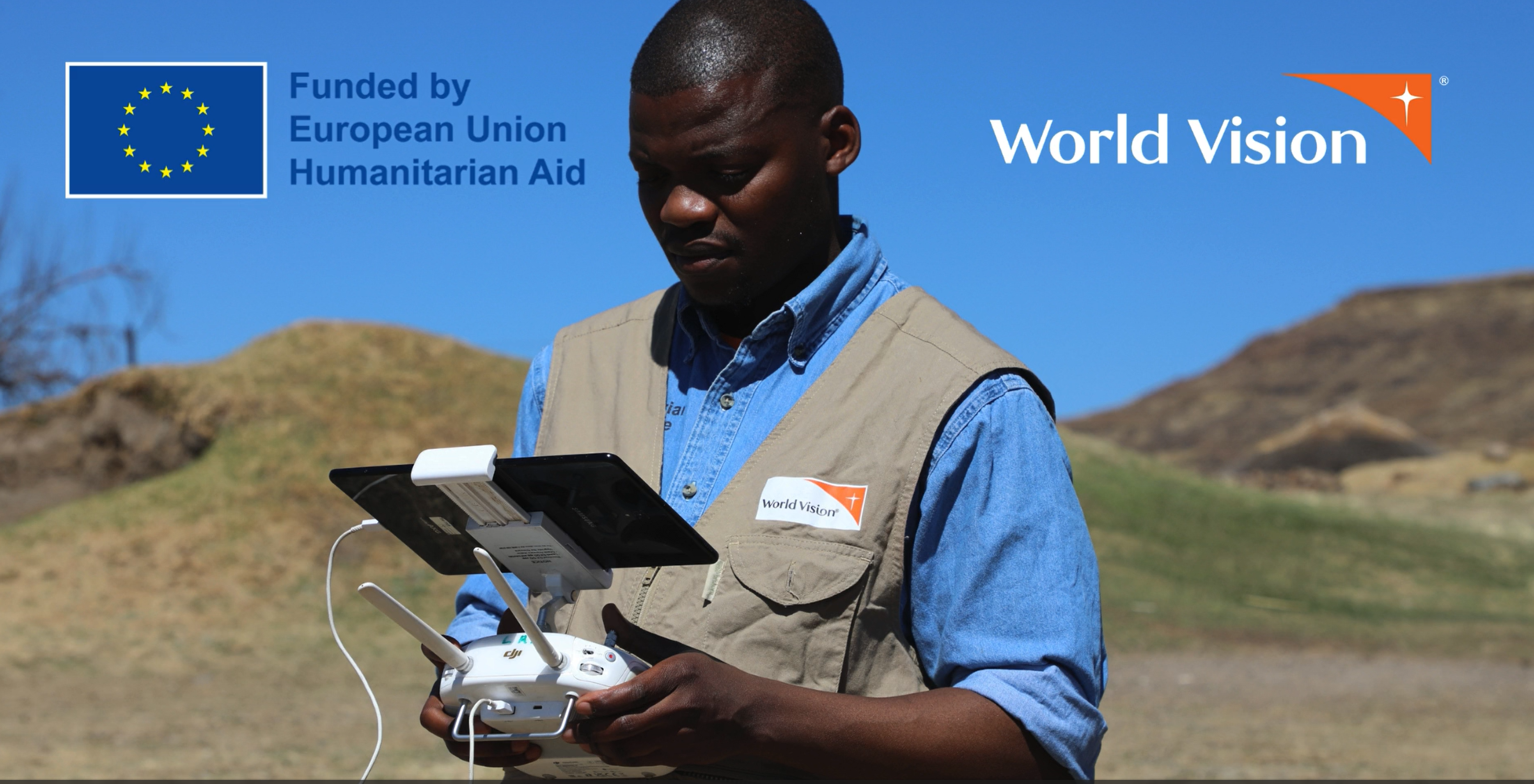
Lesotho’s youth also reaffirmed the importance of leveraging technology in DRR efforts, advocating for the adoption of early warning systems and artificial intelligence to enhance disaster response mechanisms. Their insights reinforced the need for innovation and digital solutions in mitigating the impact of disasters.
Government representatives, including ministers from the Ministries of Education and Training; Communications, Science, Technology, and Innovation; and Gender, Youth, and Social Development, outlined existing interventions aimed at managing disaster risks within their respective portfolios. They collectively emphasized the necessity of coordination and inclusive engagement, pledging to actively participate in ongoing DRR efforts.
A Call to Collective Responsibility
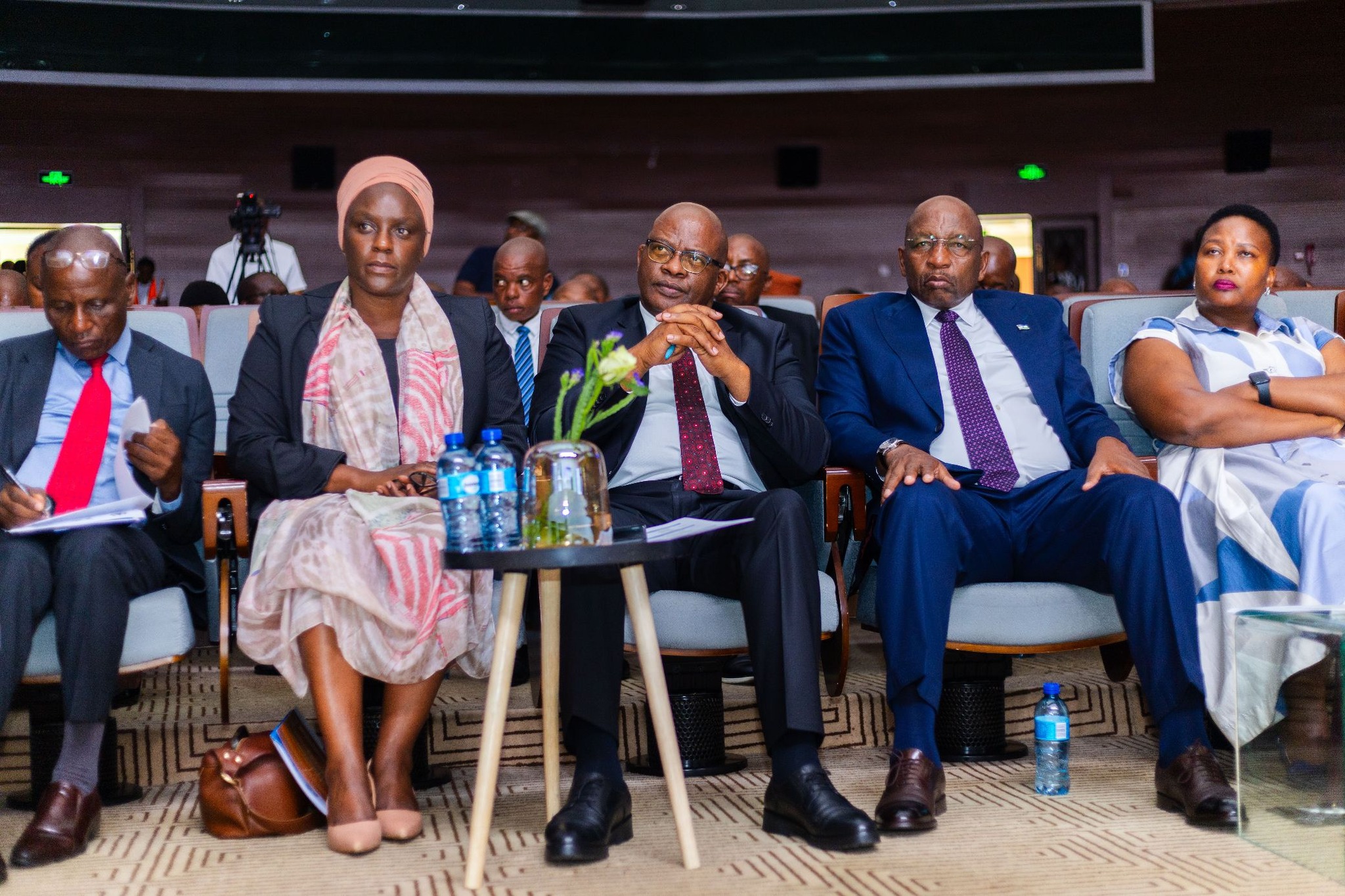
The dialogue underscored the critical role of every citizen, sector, and government entity in strengthening disaster preparedness. Disaster risk reduction is not solely the responsibility of government agencies or humanitarian organizations it demands active participation from all sectors of society.
Honourable Prime Minister Sam Ntsokoane Matekane reinforced this call to action, emphasizing that DRR should not merely be a policy but a national priority. “Our government is committed to ensuring that disaster risk reduction is not just a policy but a national priority,” he stated. He further reaffirmed the government’s investment in early warning systems, climate adaptation, and sustainable development programs to safeguard communities from disaster risks.
“Our government is committed to ensuring that disaster risk reduction is not just a policy but a national priority,” - Hon. Prime Minister, Sam Ntsokoane Matekane
World Vision’s Commitment to Disaster Resilience
As World Vision Lesotho continues to play a pivotal role in supporting DRR in Lesotho, the organization remains dedicated to advocating for stronger policies, systems, and frameworks to protect every Mosotho citizen from the devastating impacts of disasters. Through the Consolidating and Strengthening Disaster Risk Reduction (CSDRR) Project, World Vision Lesotho has undertaken various advocacy initiatives at both local and national levels, fostering stakeholder engagement in DRR affairs.
These efforts have led to improved coordination at the district level, enabling swift responses to food insecurity by humanitarian actors. Additionally, the project has mobilized resources for schools in disaster-prone areas, encouraging local stakeholders to contribute toward improving school infrastructure. These initiatives not only ensure a conducive learning environment but also uphold the fundamental right to education, reinforcing World Vision’s commitment to the well-being of children in Lesotho.
Moving Forward
The National Dialogue on Disaster Preparedness has set the stage for a more unified and proactive approach to DRR in Lesotho. The discussions, insights, and commitments shared during the forum serve as a powerful reminder that resilience-building is a shared responsibility. By amplifying the voices of children, integrating technology, and fostering collective action, Lesotho can strengthen its preparedness and response to disasters, ensuring a safer, more sustainable future for all.